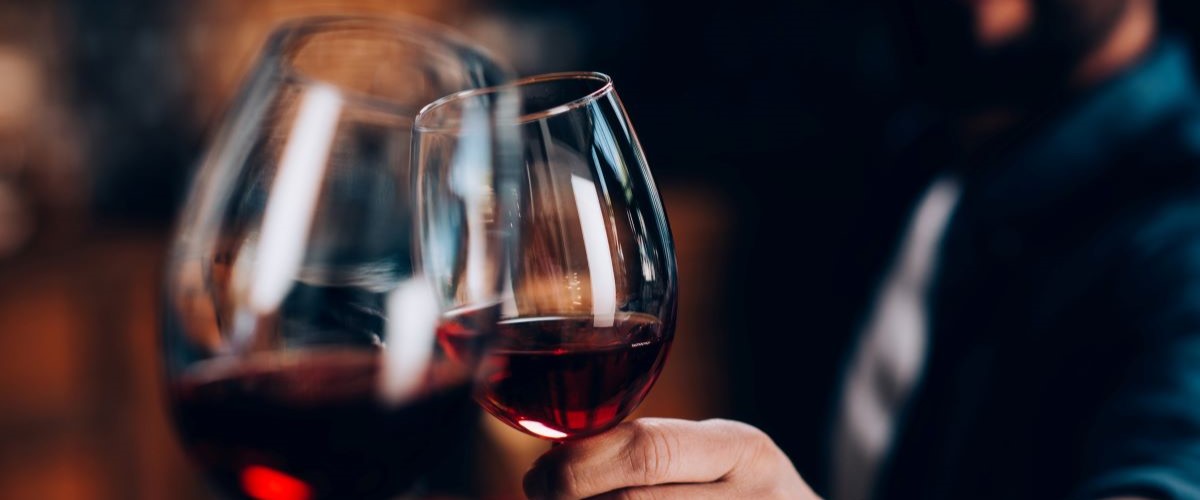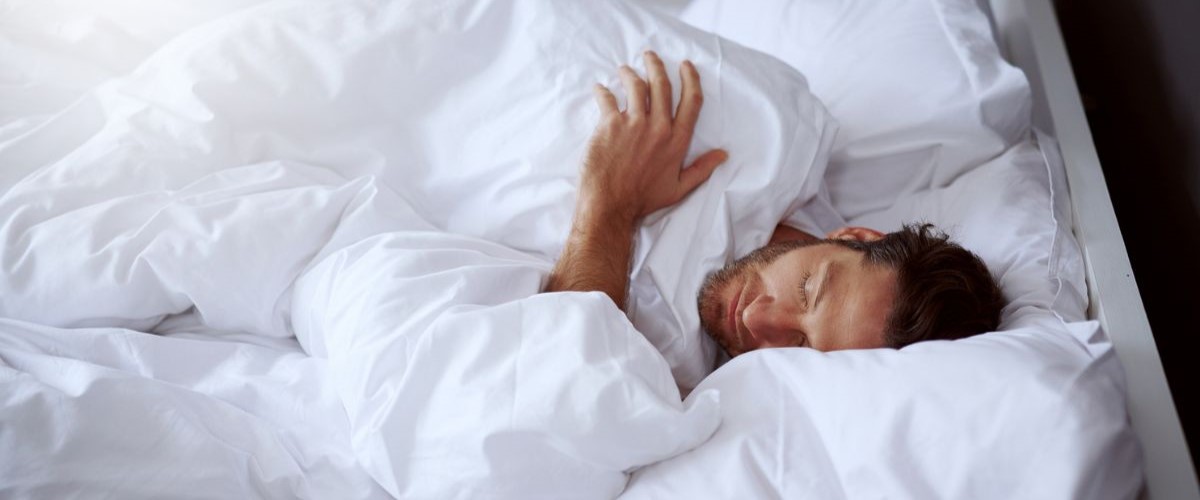Here’s why you might be craving alcohol right now
If wine o’clock can’t come round fast enough, it might be time to curb your drinking habits. Cheryl Freedman explores what’s going on psychologically and how to drink more mindfully

What does 6pm signal for you? Time to log off your computer and do some laundry? Maybe go for a run. Or, is it time to pour yourself a nice cold gin and tonic or crack open a beer?
If it’s the last one, you’re definitely not alone. During lockdown, many of us fell into the habit of reaching for a glass of something after another stressful or monotonous day working from home. Unsurprisingly, how much alcohol you drink is a hot topic at the moment.
One 2020 study suggested almost half of Brits consumed more than they did before the pandemic due to feelings of loneliness, anxiety and depression.
Another UK study of 27,000 people by the University of Glasgow found the proportion of people drinking four or more times per week increased during the pandemic. Things aren’t necessarily any better now lockdown has eased.
The buzz of pub gardens and the warmer weather has seen us switch into ‘holiday mode’. Aperol, anyone?
Admittedly, not every pandemic statistic suggests a rise in consumption – research from Sheffield University indicated our collective at-home drinking didn’t quite match the amount we’d otherwise have consumed in pubs and restaurants.
According to charity Alcohol Change UK, more than a third of people actually cut back, while the rising trend for ‘mindful drinking’ – drinking less often and more consciously – is especially popular among younger generations.
Clearly the picture is complicated. Nonetheless, individually, many of us are still craving a stiff drink after an unprecedentedly difficult year, and finding it tougher to stick to the recommended maximum 14 units a week.
So what’s going on in our brains when we feel the lure of ‘wine o’clock’?
What happens when we crave a drink?
Craving is when we have an overwhelming desire for something – be that a certain food, drug or alcohol – often brought on by a trigger (the clink of a glass or the laptop closing).
Our bodies remember the substance’s previously rewarding effects, which drives our behaviour to seek it out again, and these cravings can feel impossible to resist.
”Cravings tend to be our body recognising we are lacking something,” says chartered psychologist Dr Audrey Tang, spokesperson for the British Psychological Society and author of The Leader’s Guide To Resilience.
”Often we use alcohol not because we need the actual substance, but because we want what it seems to give us – confidence, the ability to forget, or an excuse to let go. There is usually another need that alcohol is covering up.”
Drinking is one of a number of ‘soothing’ methods we can use to manage stress, says Dr Tang. However, if we’re not careful, we can end up in a vicious cycle.
”If we’ve become conditioned to soothe ourselves with alcohol, its properties as a drug can lead us to consume and crave more and more.”
Over time, our bodies build up tolerance – so we need more alcohol to achieve the same ‘loosening up’, disinhibiting effects. One issue is that, psychologically, drinking alcohol can feel like we’re ‘doing something’ to solve a problem, says Tang.
”It falls in the same category as recreational drugs, overspending or comfort eating – things that give us a short-term sense of feeling in control.”
However, once alcohol’s masking effects wear off, we’re left with the same problems – for instance, feelings of loneliness or depression – creating a vicious cycle.
”It’s why a hangover is often accompanied by anxiety,” says Dr Antonis Kousoulis, Director of England and Wales for the Mental Health Foundation.
In the wake of the pandemic, there might be other psychological issues wrapped up with wanting a drink right now, says Tang. So, what are the possible reasons why we’re drinking?
Feeling we deserve a ‘treat’
We often tell ourselves we ‘deserve’ that glass or three of red after a tough or dreary day.
The enforced lockdown meant some people saw alcohol as the one guilty pleasure they could still access, says Tang. The fact that off-licences were deemed ‘essential shopping’ only legitimised this belief.
”With so many other freedoms restricted, and avenues of escapism taken away, there can be an excitement in indulging.’
Because we want to rebel
For some, drinking at home felt like a form of rebellion, as power was removed elsewhere, theorises Tang.
”One of the psycho-social explanations for eating disorders is that what we consume is under the control of the individual and can be a stand against an overly controlling family. It’s possible alcohol consumption is the same response to a perceived ’nanny state’.”
To stave off boredom
With the days blurring into one, for some alcohol offered both a sense of structure and simply ‘something to do’.
With no commute or team drinks down the pub, that first sip of the evening also demarcated a shift from work to leisure time.
However, unchecked, this kind of routine drinking can evolve into an automatic behaviour where we’re drinking habitually without questioning it.
And humans are creatures of habit – studies show 40% of our daily activities are predictable and performed without conscious intention. ”A habit – like anything we do not choose consciously – needs to be monitored,” says Tang.
Because of peer pressure
In our culture, there’s still a strong underlying narrative saying ‘drinking is fun’. Celebrating is interchangeable with alcohol – imagine a wedding without the pop of champagne.
Consequently, if you don’t indulge, you can feel like an outsider.
”As humans, we look to others for our social status, and if, in the community we frequent, those that drink have the greater share of resources, we may feel we need to drink to fit in,” says Tang.
Research suggests alcohol is often used by those with social anxiety. We might be fearful that, if we don’t drink, we’ll feel too shy to enjoy events, says Tang.
Even at home, we can’t escape social pressures – perhaps our partner wants to share a bottle most nights, while the number of people drinking during video or audio calls shot up last year.
Tang says things are gradually changing peer pressure-wise, pointing to Millennials or Generation Z-ers, who are more health conscious and less likely to drink to start with. But we’ve still got a way to go.
7 useful strategies for more mindful drinking
It’s fine to enjoy alcohol in moderation, and as part of an overall healthy, balanced lifestyle, if you want to.
However, it’s a good idea to keep an eye on drinking patterns. Routine drinking, even if not to excess, can mean ”we become conditioned to using alcohol as our crutch”, says Tang.
”Unfortunately, the more we do this, the less we practise other coping methods.” Regularly drinking too much is linked to everything from liver problems to higher rates of certain cancers, heart disease and stroke, as well as mental health issues.
Resisting those cravings ”is about retraining our thinking and finding different pleasures”, says Tang. She suggests the following:
-
Try to ‘urge surf’
”This is a technique from DBT, or dialectical behaviour therapy,” says Tang. ”When you feel the urge to drink, do something else. Ideally, choose a substitution in easy reach – reach for a glass of water, piece of fruit or good book.”
-
Identify alternative ‘healthy’ soothing techniques
”This could include things like meditation, going for a walk, deep breathing or running a bath – ideally, something which doesn’t cost money and grounds us.” Tang says things that get our adrenaline pumping, such as running or playing a sport, can be effective, too.
-
Question what’s really going on
”Even before you take the first drink to solve the problem at hand – ask what it is you really need right now,” says Tang. It’s likely to be emotional or mental. Use this technique to pace yourself at the bar. ”Before you order another drink, ask yourself: ‘Do I want this, and is it really making me feel good?’”
-
Stock up on non-alcoholic treats
It might be tonic water, fizzy elderflower or ingredients for a great mocktail. Or one of the panoply of great non-alcoholic spirits, wines and beers currently flooding the market (most far nicer than the teetotal options of the past). “Plan your treat – have the drink you love in the house and set aside a time to really enjoy it, not gulp it down while you’re doing something else,” says Tang. Similarly, if you are having an alcoholic drink, “really savour it”.
-
Prepare a ‘peer pressure’ response
Want to hang out with friends, but not drink yourself under the table? “You might practise in advance what you will say to people who see your refusal to drink as some sort of reflection on them, says Tang.
-
Think about the money
Alcohol is expensive (one reason why Gen Z may be less keen on drinking than older generations, suggests Tang). “Save the money from every drink you don’t buy, then spend it on something rewarding.”
-
Slowly increase no-alcohol days
If you find you’re drinking every or most days, the charity With You advises planning an extra drink-free day a week, to give your body time to recover.
Seek help when you need it
Most of us can learn to control our cravings. However, unchecked, our alcohol use can slip into new territory, almost without us realising – what some people are starting to term ‘grey area drinking’.
“Drinking alcohol becomes problematic when we believe we cannot function without it, or when our brain chemistry alters so we need more alcohol to feel better, or feel awful when we are sober,” adds Tang.
If you feel your alcohol use may be problematic, there are places you can seek support and advice. The NHS advises talking to your GP first of all, and you can search for NHS alcohol addiction services by postcode.
Alcohol Change UK offers tips and advice (with a handy quiz to help you assess how healthy your drinking is). Drinkaware has an app you can download to help you track and moderate your drinking, as well as a helpline.
And With You also offers free confidential support.
Recent articles
another dummy article
standfirst: a brief introductory summary of an article in a newspaper or on a website, typically appearing immediately after the headline and typographically distinct from the rest of the article.

Get the Zs you deserve: 6 common sleeping myths put to bed
Could falling for a common sleep myth be where we’re going wrong? This World Sleep Day, we’re setting the record straight so that you get the best from the land of nod

What’s increasing your risk of cancer?
Getting cancer isn’t always down to our genes or simply bad luck, unhealthy lifestyle choices can also play a part. Journalist Sally Shore discovers some everyday factors that increase our risk and how to combat them
